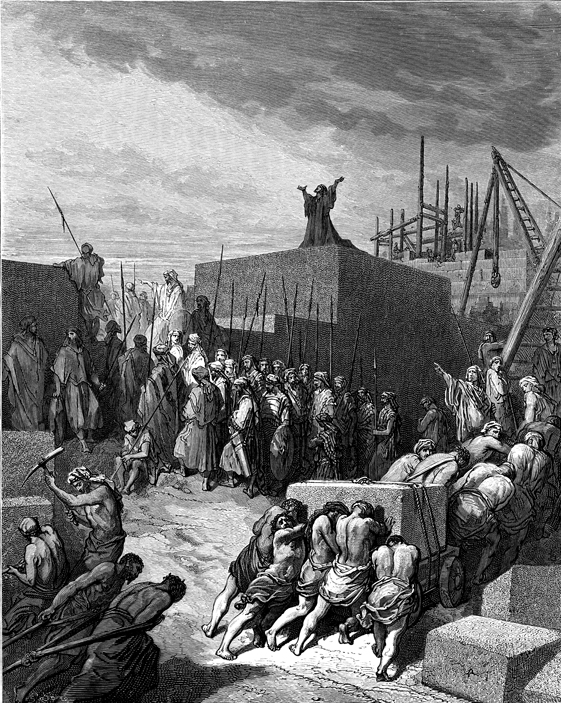
(The Rebuilding of the Temple / Gustave Dore)
When addressing the question of "Why is the prophetic important?" I feel it is important to offer the rejoinder, "Why wouldn't it be?"
When Scripture so clearly states such things as...
"...earnestly desire the spiritual gifts, especially that you may prophesy." [1 Cor. 14:]
and
"... I want you all to speak in tongues, but even more to prophesy." [1 Cor. 14:5]
and
"... Do not despise prophecies." [1 Thes. 5:20]
... it seems like it would be incumbent upon believers to answer question like, "What does this mean?" and "How do I apply this to my life?"
Let's consider Ephesians 4:11-12.
"And he gave the apostles, the prophets, the evangelists, the shepherds and teachers, to equip the saints for the work of ministry, for building up the body of Christ."
I would assume most Christians wouldn't demand an explanation of "why" regarding all of these roles of leadership in the church. (E.g. few Christians would have suspicions or misgiving about why the church needs teaching or teachers.) Since they are all commonly referenced in the NT, one would think that the basis of such confidence would simply be founded in Scripture. But why then would we ask "why" of the prophet and not of the teacher or shepherd?
I suspect this inconsistency results from one or both of the following:
- Lack of first hand experience with the prophetic (or confusion regarding our experiences with it)
- The natural equivalents of the other roles (i.e., we are more able to comprehend these other roles from a natural point of view)
Thus our receptiveness to the prophetic has more to do with our experience and natural reasoning than with the counsel of Scripture. But this shouldn't be the way Christians operate.
My first post on the prophetic was titled De-/Re-Mystifying the Prophetic. To re-mystify the prophetic, is to restore it to it's supernatural power. To de-mystify it is to restore it to it's understandable place in Christian life.






